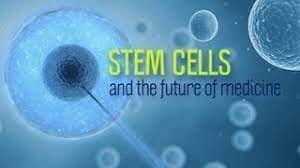StemCells Technology: The Future of Medicine?
Stemcells are undifferentiated cells that have the potential to develop into any type of cell in the body. They are found in all multicellular organisms, including humans.
Stem cell research is a rapidly growing field of science with the potential to revolutionize medicine. Stem cells can be used to repair damaged tissues, replace lost cells, and even create new organs.
There are three main types of stem cells:
- Embryonic stem cells: These cells are derived from the inner cell mass of an early embryo. They are pluripotent, meaning they can develop into any type of cell in the body.
- Adult stem cells: These cells are found in various tissues throughout the body. They are multipotent, meaning they can develop into a limited number of cell types.
- Induced pluripotent stem cells (iPSCs): These cells are created by reprogramming adult cells into a pluripotent state.
Stem cell research is still in its early stages, but it has already shown great promise in the treatment of many diseases. Here are some of the most promising applications of stem cell research:
- Treatment of cancer: Stem cells can be used to repair damaged tissue after chemotherapy or radiation therapy. They can also be used to create new blood cells for patients with cancer.
- Treatment of heart disease: Stem cells can be used to repair damaged heart tissue after a heart attack. They can also be used to create new heart cells for patients with heart disease.
- Treatment of spinal cord injuries: Stem cells can be used to repair damaged spinal cord tissue. This could help to restore movement and function to patients with spinal cord injuries.
- Treatment of diabetes: StemCells can be used to create new insulin-producing cells for patients with diabetes. This could help to improve blood sugar control and prevent complications of diabetes.
- Treatment of Alzheimer’s disease: Stem cells can be used to repair damaged brain tissue in patients with Alzheimer’s disease. This could help to improve memory and cognitive function.
Stem cell research is a rapidly evolving field with the potential to revolutionize medicine. As research continues, we can expect to see even more promising applications for stem cells in the future.
Here are some of the ethical concerns surrounding stem cell research:
- The use of embryonic stem cells: Some people believe that it is unethical to use embryos for research.
- The potential for human cloning: StemCells can be used to create embryos, which could be used for human cloning.
- The risk of tumor formation: There is a risk that stem cells could form tumors.
- The cost of stem cell therapy: Stem cell therapy is expensive, and not everyone can afford it.
Despite these concerns, stem cell research is a promising field with the potential to save lives and improve the quality of life for many people. As research continues, we can expect to find ways to address the ethical concerns and make stem cell therapy more accessible.
Here are some of the ways to get involved in stem cell research:
- Donate to a stem cell research organization.
- Volunteer your time to a stem cell research organization.
- Educate yourself about stem cell research.
- Talk to your elected officials about the importance of stem cell research.
By getting involved in stem cell research, you can help to ensure that this promising field has the resources it needs to continue to make progress.
Conclusion
StemCells related research is a rapidly growing field with the potential to revolutionize medicine. There are many promising applications for stem cells, but there are also some ethical concerns that need to be addressed. By getting involved in stem cell research, you can help to ensure that this promising field has the resources it needs to continue to make progress.
Thanks for visiting Gymbag4u.com
You may also love reading our following articles on upcoming future medical technology. tele health technology benefits and challenges – GymBag4U and digital health technology everyone must know – GymBag4U
